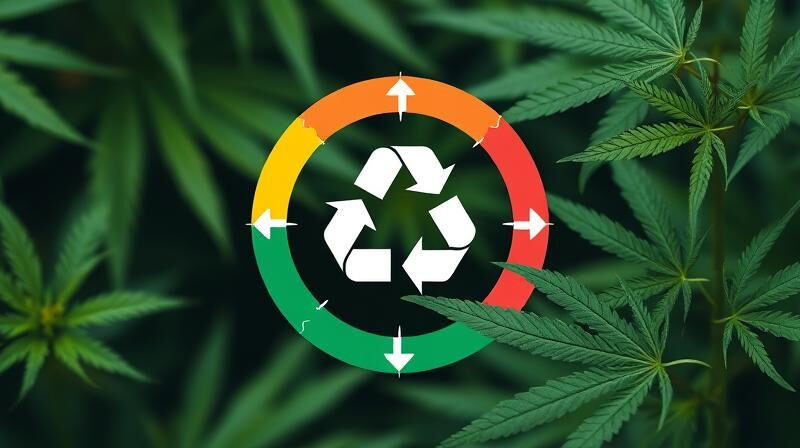As the global market for industrial hemp (industrial cannabis) is expected to grow from $9.47 billion in 2024 to an impressive $72.57 billion by 20321, Albania is in a favorable position to benefit from this rapidly expanding industry.
The United Nations has presented several policy recommendations in the UNCTAD report titled “UN Commodities at a Glance: Special Issue on Industrial Hemp.”2 These recommendations are designed to assist Albanian policymakers in creating a robust framework for industrial hemp, which could significantly enhance rural development, production and food processing sectors.
Understanding the Potential of the Global Hemp Market
The rapid growth of the global hemp market presents a unique opportunity for Albania, especially as legislation at national and international levels opens new markets for agricultural producers. By clarifying the legal status of industrial hemp in relation to other types of cannabis, Albania can reduce financial risks for local producers and encourage investments in this sector. Policymakers need to understand that hemp value chains can stimulate economic growth in rural communities by creating jobs and improving livelihoods.
Improving the Availability of Information on Hemp
An important step for Albania is to improve the availability and access to information regarding hemp production. Currently, public data is scarce and primarily focuses on standard products such as hemp fibers and seeds. Policymakers should support the inclusion of other categories in international classifications, including hemp seeds, oils and other products. This would not only enhance market transparency but also support informed decision-making for hemp producers and investors.
Establishing a Clear Regulatory Framework for Hemp
It is essential to regulate THC limits in final products rather than in the plant itself. This approach would allow for a broader range of hemp varieties that are more suitable for Albanian environmental conditions. By focusing on product outcomes, Albania can encourage innovation and the development of new hemp-based products that meet consumer demands while ensuring safety and compliance.
Comprehensive Hemp Strategy
Albania has already made progress in adopting a regulatory framework with the Cannabis Law 61/2023, which supports a comprehensive hemp strategy. This approach emphasizes the utilization of the entire hemp plant for the production of various products, rather than focusing solely on specific parts like stalks or seeds. By maximizing the economic value of industrial hemp crops through a wide product portfolio, this strategy promotes sustainability and encourages innovation in the industry.
Promoting Sustainability
Sustainability is a fundamental principle of any hemp-related policy. Hemp cultivation offers numerous environmental benefits, including soil decontamination and CO2 absorption, making it an excellent candidate for climate change mitigation strategies. Policymakers should prioritize sustainable practices that protect biodiversity and ensure a fair and equitable distribution of benefits arising from hemp production.
Developing a Value Chain for Industrial Hemp
Given the diversity of industrial hemp, Albania should consider creating national or regional value chains for hemp that leverage the various applications of the plant. This would facilitate the development of primary and secondary markets, helping to mitigate risks associated with market volatility. Policymakers should also explore carbon compensation schemes to further financially support hemp cultivation, linking economic motivation with environmental goals.
Encouraging Regional Cooperation
Regional cooperation can significantly enhance the effectiveness of Albania’s hemp policies. Collaborating with neighboring countries to create sustainable hemp production and supply chains can help overcome market access barriers and improve competitiveness. For example, partnerships with countries that have established processing capacities for hemp could facilitate the development of local value chains, ensuring that Albanian hemp products meet international quality standards.
Support for Small Farmers
Engaging small farmers in industrial hemp cultivation is essential. Policymakers should focus on creating cooperatives that empower these farmers and promote sustainable agricultural practices. Furthermore, special attention should be given to policies that assist women and vulnerable groups in participating in the cultivation and processing of hemp.
Harnessing the Potential of Industrial Hemp
The potential of industrial hemp in Albania is vast, offering opportunities for economic growth, environmental sustainability, and social development. By implementing the UN’s policy recommendations, Albanian policymakers can create a supportive environment for the hemp industry to thrive, ultimately benefiting rural communities and improving the country’s economic resilience. Realizing this opportunity will require a collaborative effort between the government, industry stakeholders and local communities to ensure that Albania can fully leverage the advantages of this diverse crop.
References:
- Spencer, Joe, The Future of Albania in the European Hemp Market, AlbaniaHemp.org, https://albaniahemp.org/en/the-future-of-albania-in-the-european-hemp-market/
- UN Commodities at a Glance: Special Issue on Industrial Hemp, https://albaniahemp.org/en/commodities-at-a-glance-special-issue-on-industrial-hemp/



